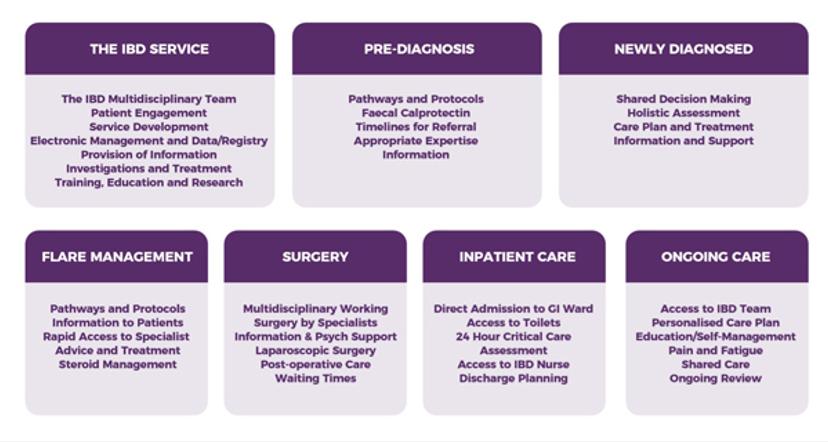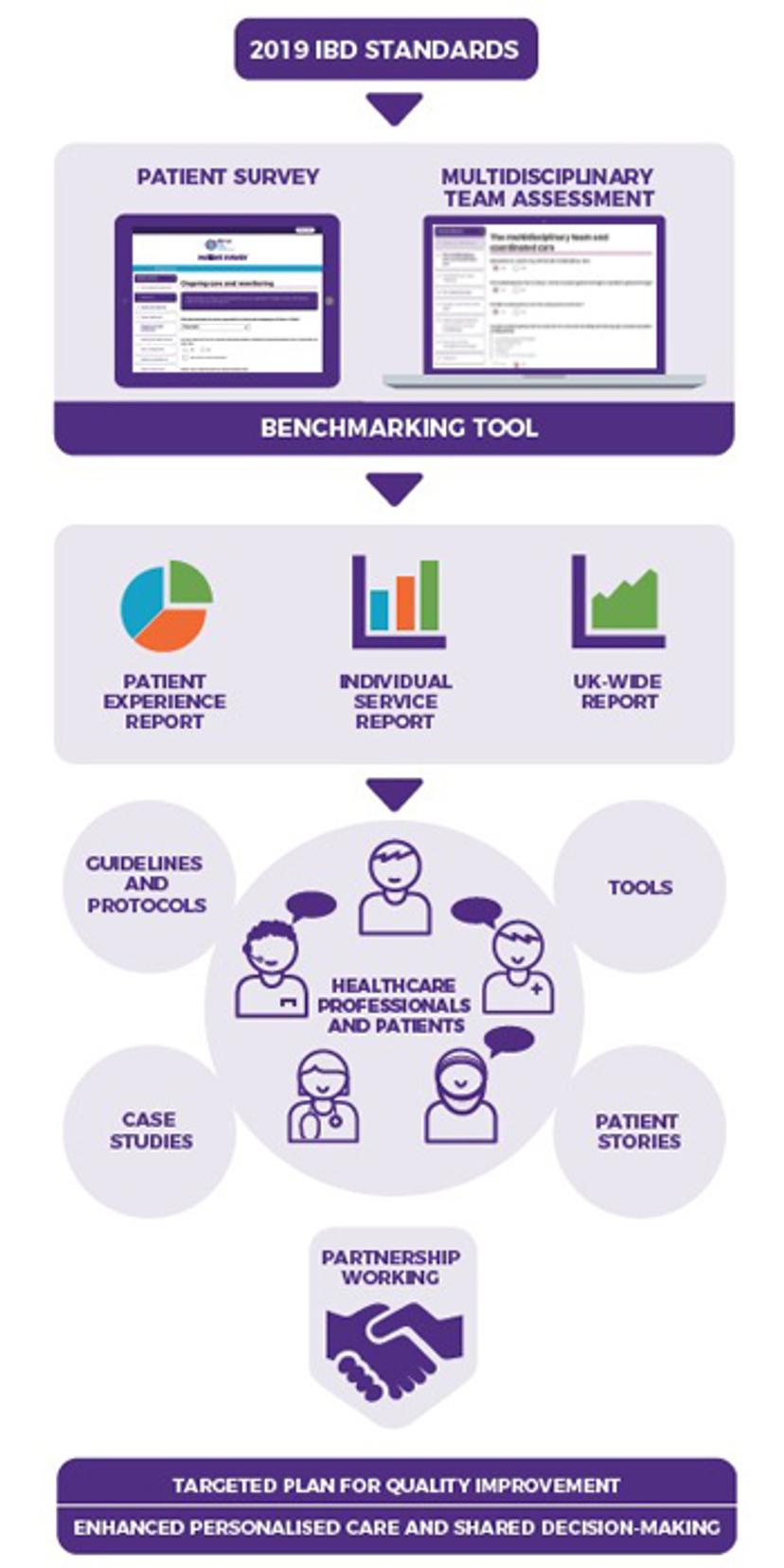New Study Highlights the Need for Improvements to IBD Care
Paper published in Frontline Gastroenterology outlines new quality standards and benchmarking framework for inflammatory bowel disease
24 Jul 2019
A study published in Frontline Gastroenterology rewrites the IBD Standards for adults and children with IBD, aiming to drastically improve how care for people with the condition is delivered across the UK, addressing the current variation and inconsistency which leads to increased cost and poor outcomes.
Led by IBD UK, a partnership of 17 professional and patient organisations chaired by Crohn’s & Colitis UK, the 2019 IBD Standards are a framework of 59 statements grouped around the patient journey, covering clear referral pathways, access to IBD nurses, increased psychological support, shared care, empowerment and self-management. This could lead to a transformation in care for people with IBD, whilst supporting the NHS’s vision of personalised care and support.
IBD – the two main forms being Crohn’s Disease and Ulcerative Colitis - is a frequently misunderstood, painful, lifelong disease of the gut, causing ulcers and inflammation, as well as an often devasting socio-economic impact. It leads to long-term consequences not just for the individual but the NHS who will need to support that individual over their lifetime. The lifetime costs for treating and caring for people with IBD are comparable to those for heart disease or cancer, and conventional models of care are not fit for purpose.
Underpinned by extensive qualitative survey response from 700 patients and 151 healthcare professionals, and three rounds of modified e-Delphi with active involvement from key IBD stakeholders including the British Society of Gastroenterology, the Royal College of Nursing and the Royal College of General Practitioners, the 2019 IBD Standards provide a strong patient-centred framework for ongoing service development and quality improvement in UK-wide IBD care.

Aligned with the 2019 British Society of Gastroenterology (BSG) IBD Guidelines and the 2018 Association of Coloproctology of Great Britain and Ireland (ACPGBI) IBD surgical guidelines, the rigorous approach to the 2019 IBD Standards has also seen the development of the IBD Benchmarking Tool which will allow services to identify clear areas for improvement. This will provide an opportunity to address inequalities in healthcare provision, pushing through real change, supporting with business cases and making the case for additional resources needed.

The IBD Benchmarking Tool includes the new IBD Patient Survey, which will allow a service to understand the valuable patients’ perspective. This is a unique way to measure quality of care in IBD and promotes strong partnership working.
Rukshana Kapasi, Chair of IBD UK says, “This is an exciting and groundbreaking opportunity for services and patients to work collaboratively leading to the shared priority of improving the lives of people with Crohn’s and Colitis. This version of the IBD Standards gives us the tools to drive up the quality of IBD Services and with that, the care for people with IBD. These comprehensive guidelines have included patient involvement throughout and have been endorsed by key professional organisations.”
This builds on the work of the previous IBD Standards, created in 2009, and updated in 2013, which underpin the 2015 NICE quality standard on IBD, with the study highlighting the importance of quality improvement methodologies in IBD. Healthcare professionals assessed the previous versions of the IBD Standards, with 79.7% reporting that the Standards helped them to plan and develop their local service. 71.9% said they helped to understand what a ‘great’ service should look like, and 81.7% said the Standards had helped with business case development for new resources.
However, there is still much to be done to reduce variation, including access to dietetic and psychological support, appropriate provision of IBD nurse specialists and more rapid referrals. The resulting new 2019 IBD Standards are substantially different in both content and structure to reflect the needs of the patient, as well as the way care people with IBD has changed in the intervening years. This includes new therapy options, technological advances and a shift to self-management and personalised care and support.
Barney Hawthorne, Consultant Gastroenterologist and IBD UK and BSG representative says, “I am delighted that the new IBD Standards represent a significant step forward in the management of IBD. There is a strong emphasis on collaborative working between patients and healthcare teams, better communication, and a number of specific target measures, particularly in relation to waiting times to starting treatment or investigation. The Standards have been completely rewritten and are formatted along a patient journey. These changes are essential in light of the rapidly changing IBD treatment pathways. With the online assessment of IBD services, that will be made by both patients and healthcare teams against the new Standards, there will be a powerful drive to work together to drive up the standard of care across the UK."
Want more science news straight to your inbox? Become a member of SelectScience today for free>>

